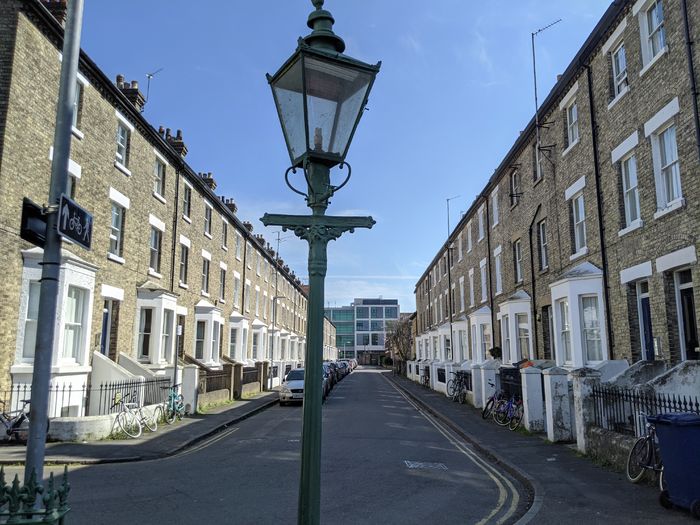Cambridge is a dream once again
In his Love Letter to Cambridge, Alex Haydn-Williams writes on dreams, both fulfilled and unfulfilled

The past’s future isn’t the same thing as the present. Your anticipations, those mental spaces that so closely resemble real ones, aren’t like the real spaces you eventually inhabit. This seems so obvious that it’s not worth saying: obviously you have expectations, obviously they’re not met precisely – and so, you remember events as they actually happened, not as they seemed in your pre-conceptions.
Love Letters to Cambridge
These are tough and uncertain times for us all, and a lot of us are left with little closure. Varsity are launching this series to give a platform to students reflecting on the parts of Cambridge they'll miss the most, and to gain some closure through writing. Just email our Features team with a 150-word pitch with your idea!
I started thinking seriously about applying to Cambridge after attending a taster session at Jesus College on a history teacher’s recommendation. I’d never heard of the place, but the website looked neat. There was a photo of a pretty, squat medieval court, with wisteria on the walls and students laughing on the grass.
I visited, and I fell in love with Cambridge – or at least Cambridge as I imagined it. In my hotel room, I listened to Teenage Wildlife by David Bowie, and dreamed of myself, older, listening to that same stabbing solo up the road in a college room. That evening, me and my mum watched a light show projected onto Old Schools. I didn’t know then that the stretch of King’s Parade we were standing on would become the place where, often, I’d soar on half-discovered wings walking home through the deep-blue night, head filled with wine and poetry and love after Shirley Society. I didn’t know that life could be lived at the scale and intensity and warmth with which I’d live it here. But I knew there was something very special to be found.

You might notice that I remember these preconceptions very, very well. All of us probably do. I listen sometimes to Teenage Wildlife and feel unbearably nostalgic. But it’s not nostalgia for something that happened. It’s nostalgia for my past self’s dream of my present self. It’s nostalgia for an idea of Cambridge that everyone’s had, trudging round on a hot open day or flicking through a prospectus. Because Cambridge, before you get here, is a dream – a collective dream in the minds of thousands of sixth-formers.
It’s a dream of moments you can just about imagine, based on the scant information you’ve got at the time: what it might be like to actually live your everyday life in this medieval college, or be taught by that academic you met, or sit in that kitchen with friends you don’t yet know, or get off the train at Cambridge station and feel you’re coming home.
I started thinking about applying in February 2018. I matriculated in October 2019. It’s now March 2020. The numbers are simple: I was dreaming about being a Cambridge student for almost twenty months; I’ve been one for less than six. In a way, I’m hardly out of the dream-state.
“But now, we can’t have those famous days on the lawn reading Shakespeare; we can’t have those punt rides and heartbreaks and cricket matches.”
The first term here felt like a continuation of that state of hoping: Freshers’ Fair and hundreds of amazing things to do and communities to join; Freshers’ Week and hundreds of new faces, any one of them potentially your friend for life. But, in the last weeks of Lent – with the Occupation, and poetry readings to die for, and lunches at the Indigo Cafe, and takeaway dinners with my friends in rainbow-speckled rooms – I thought that I’d finally found the low door that leads to enchanted happiness in the heart of this grey, perspiring city.
Life felt complete, fulfilled. I wasn’t searching for something anymore: I’d found it. And, crucially, it didn’t feel as I’d expected Lent to feel – because the best bits of life are unexpected: the nighttime walks and communal curries that spring up in an instant. I couldn’t wait for it to continue in sunnier weather, in the term that we’d been told again and again was the best of all.
That’s why I’ve felt especially close to my applicant-self these last few days; dark, quarantined, lethargic days that seem to slip away without substance or meaning. As a first year, I know I’ll be back. But none of us know when. What we do know – all too well – is that there’ll be no Easter. The term that should be on the horizon is going to remain one of these proleptic dreams.
Now, just as most of us have settled in – begun to call Cambridge home, begun to say ‘I love you’ openly to our friends – everything’s been taken away from under our feet. All the nascent little communities have been scattered. I’ll never know what it feels like to be a first year in summer. It’s back to suggestions and dreams based on the memories our college parents have passed down, of exam stress and May Balls and walking round the city in just a t-shirt with the flowers in bloom.
So often, us English students had got through the tedium of studying Troilus and Criseyde on dark winter afternoons by telling ourselves that summer would be lighter, better. But now, we can’t have those famous days on the lawn reading Shakespeare; we can’t have those punt rides and heartbreaks and cricket matches.
And what hurts most of all: we won’t make those new, unexpected connections with people who’ll reinvent us. All we’ll ever have are wisps of ourselves dancing through halcyon nights, under lamplight we don’t yet know is nostalgic; selves that we’ll never be, living a moment that we’ll never know.
So here’s to those wisps, those unmade bonds, the lives spinning out and unweaving before us. A fortnight ago, it felt like next term was going to be the best time of my life. Or perhaps, on the spring air, my futures just tasted especially sweet.
And, because we’ll return at some point, here’s to the concrete memories of the past, to everyone and everything I’ve lived alongside for half of a frenetic, transforming year. Our time’s been limited, but it’s not yet done. I love you all, and I’ll see you again in mellower seasons, when the sun rises over First Court and, for a moment, turns the falling wisteria golden.

 Interviews / You don’t need to peak at Cambridge, says Robin Harding31 December 2025
Interviews / You don’t need to peak at Cambridge, says Robin Harding31 December 2025 Comment / What happened to men at Cambridge?31 December 2025
Comment / What happened to men at Cambridge?31 December 2025 News / Unions protest handling of redundancies at Epidemiology Unit30 December 2025
News / Unions protest handling of redundancies at Epidemiology Unit30 December 2025 News / Varsity’s biggest stories of 202531 December 2025
News / Varsity’s biggest stories of 202531 December 2025 News / Downing investigates ‘mysterious’ underground burial vault 29 December 2025
News / Downing investigates ‘mysterious’ underground burial vault 29 December 2025











